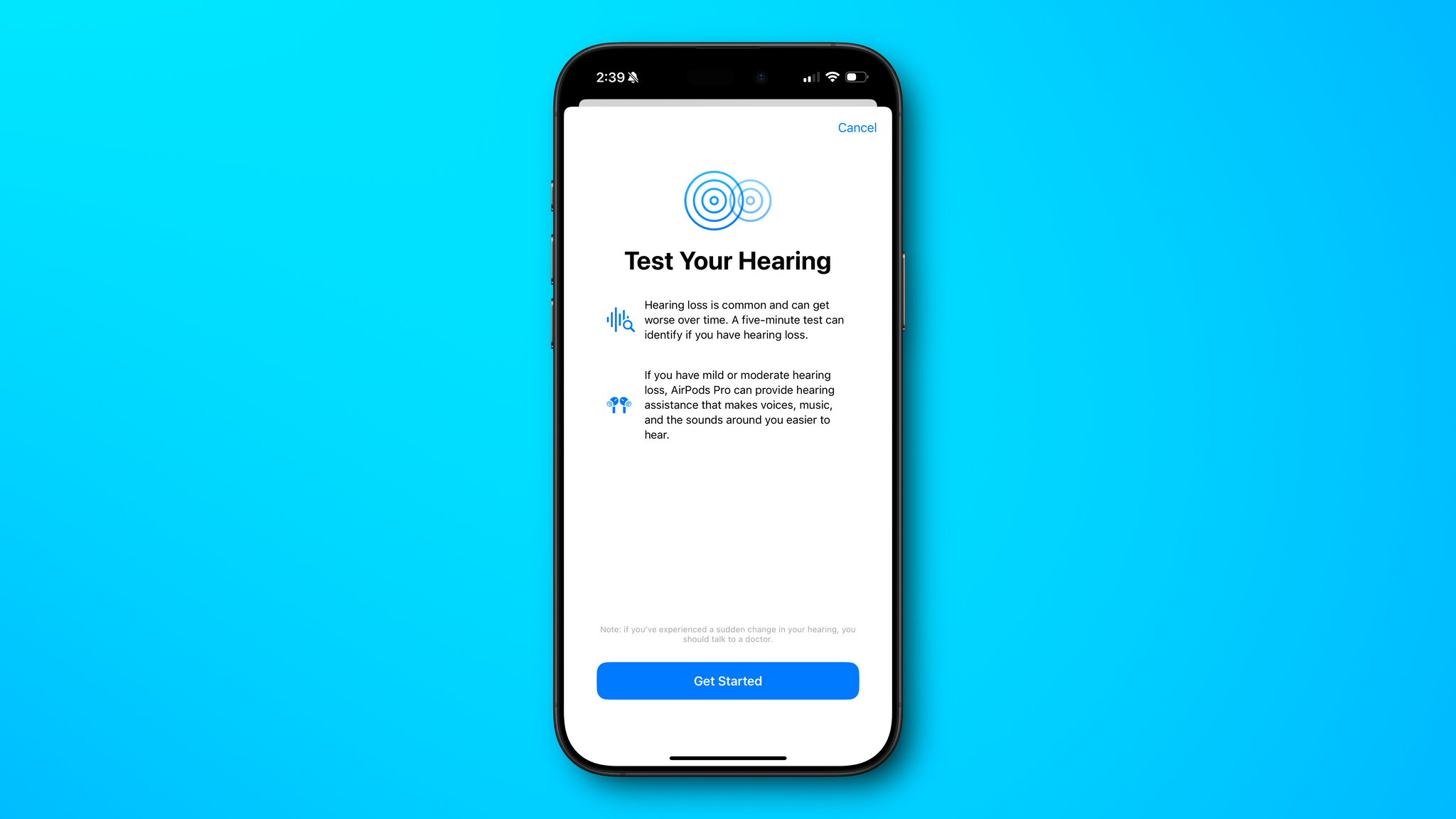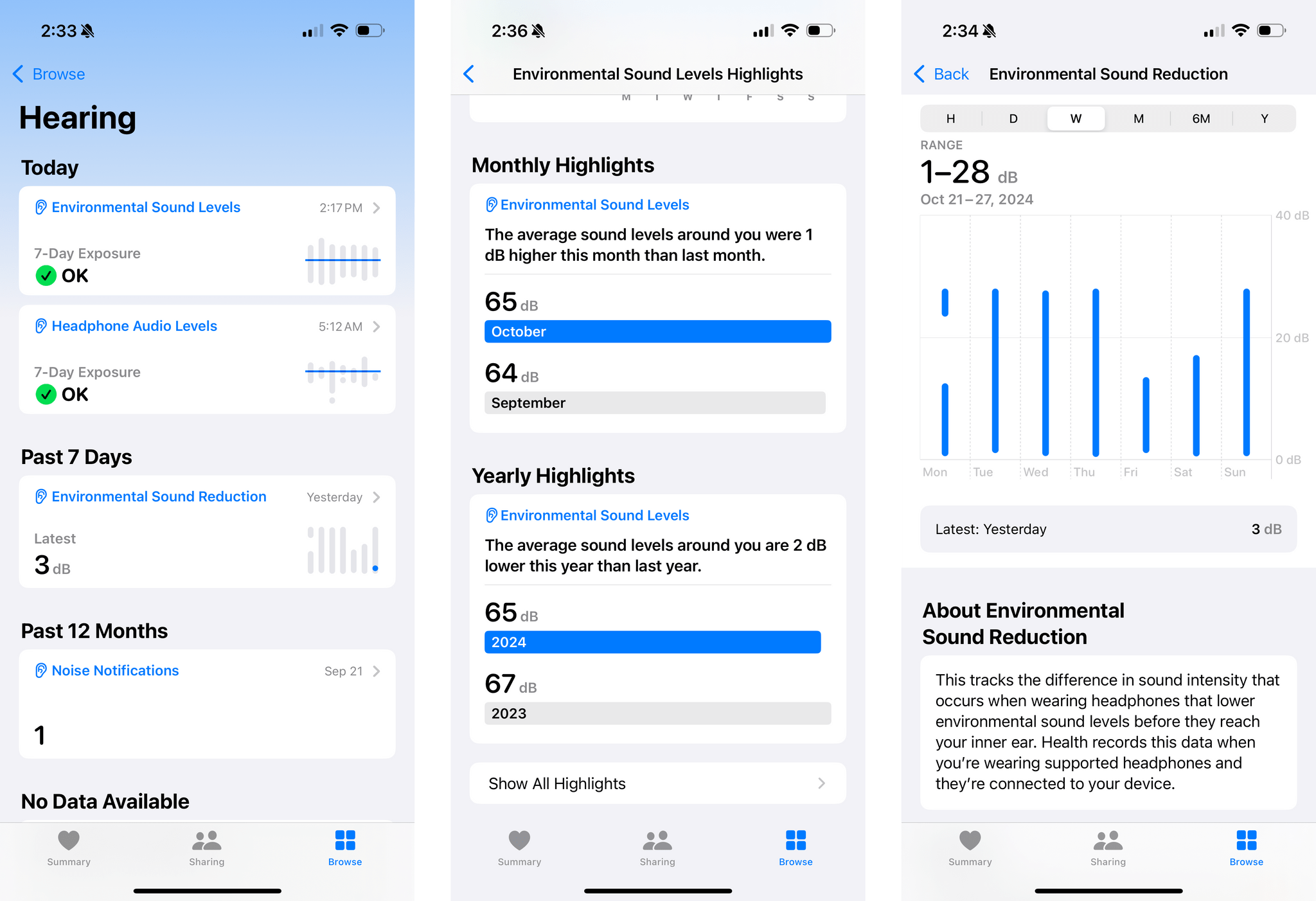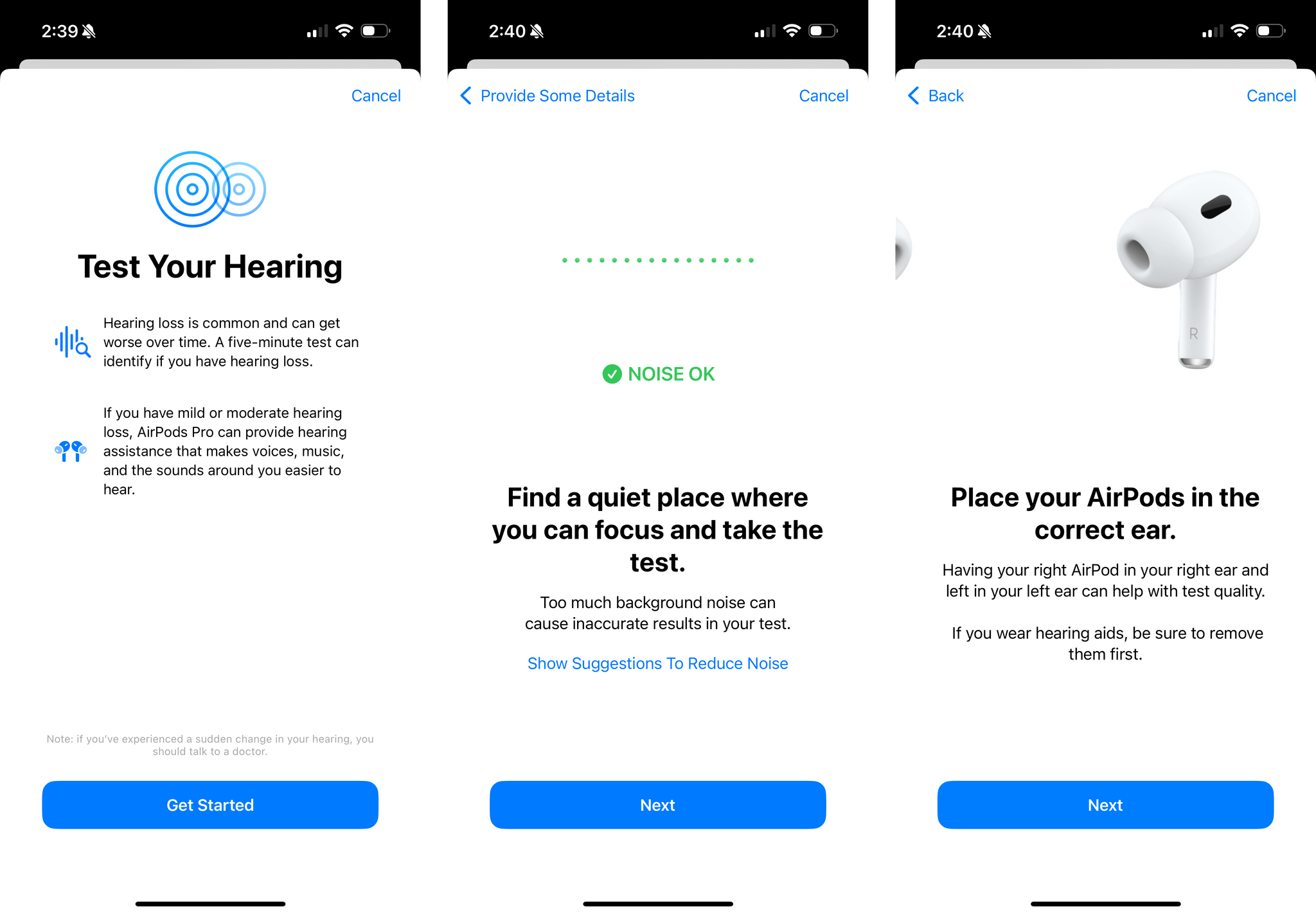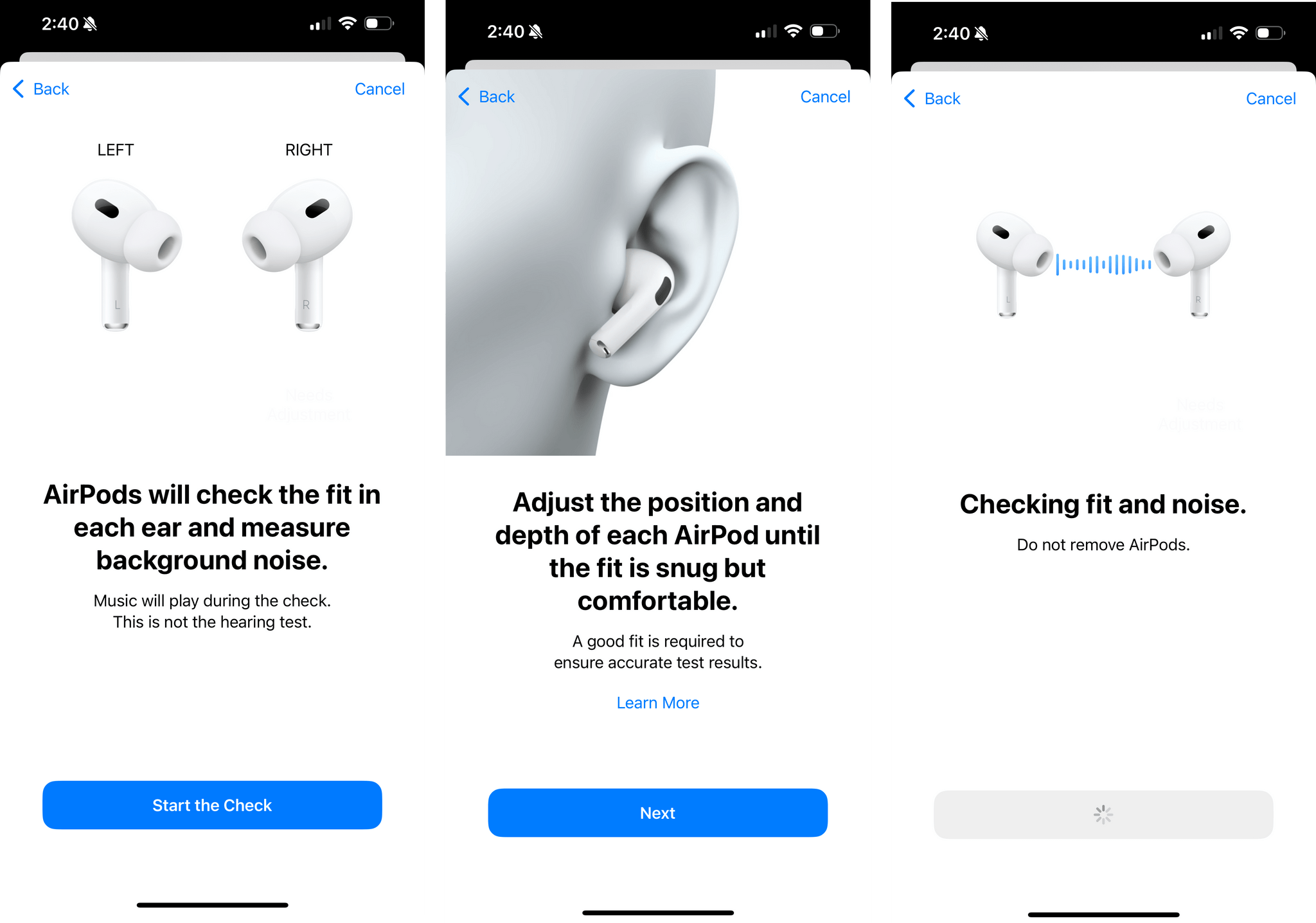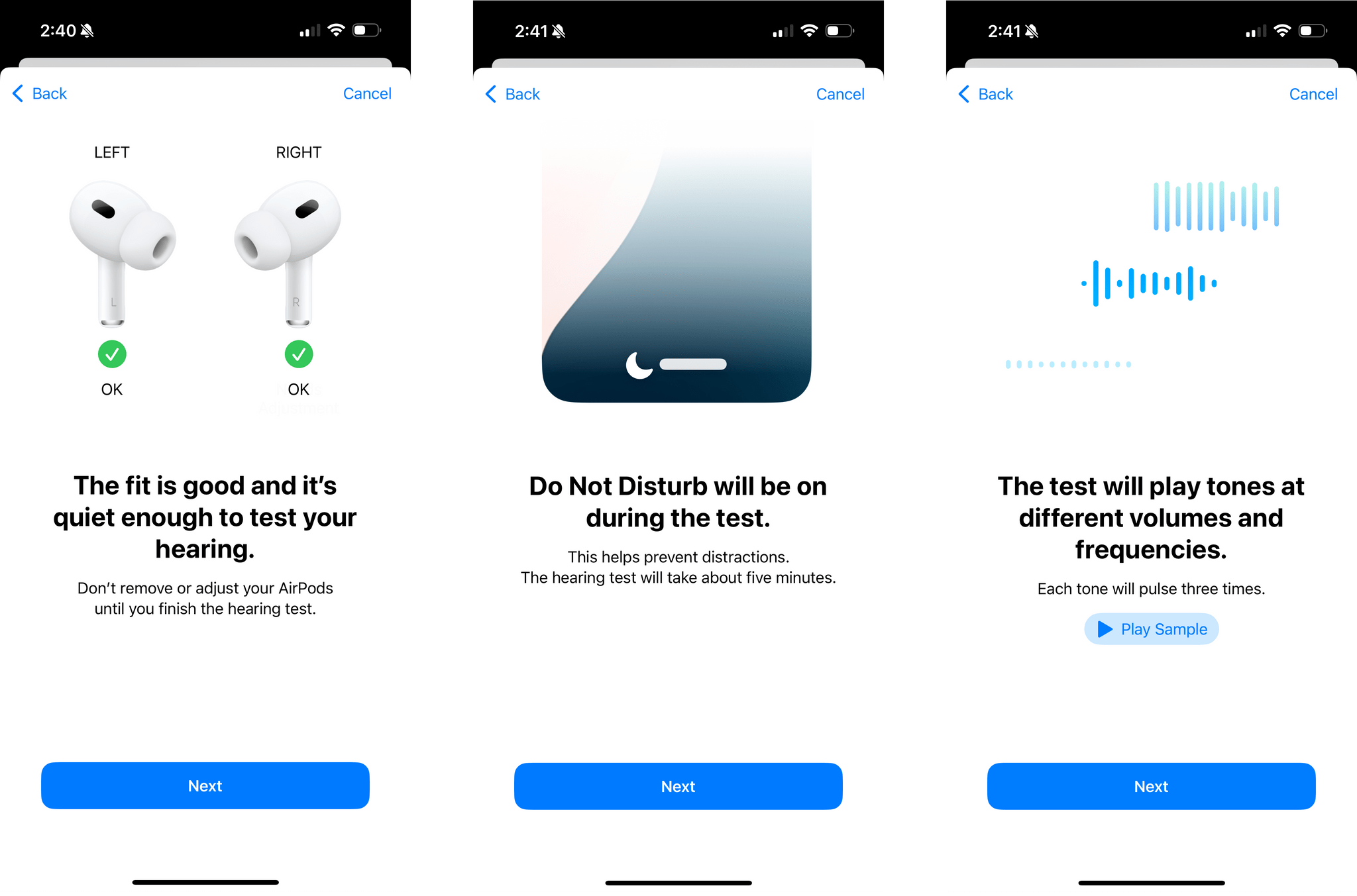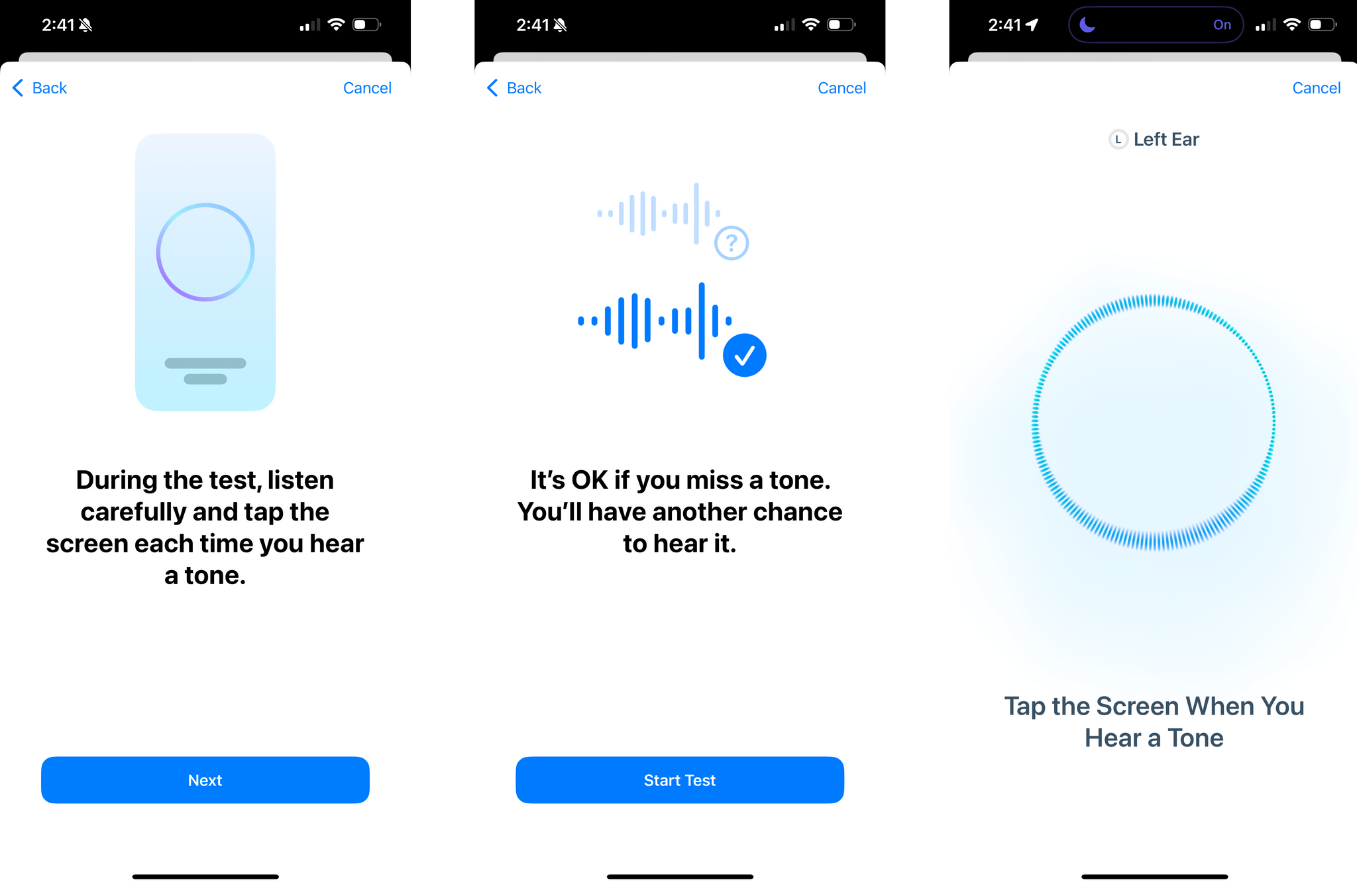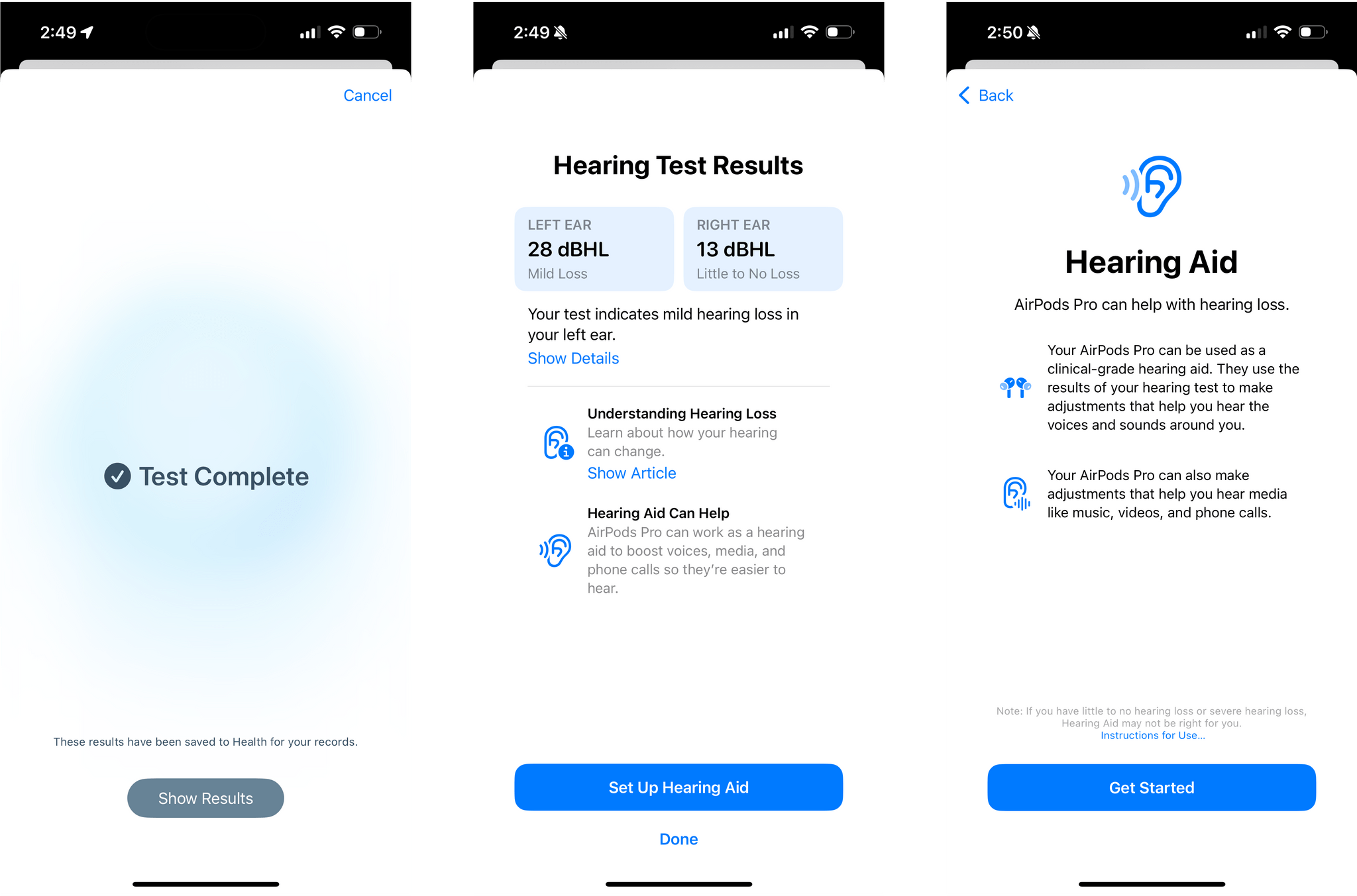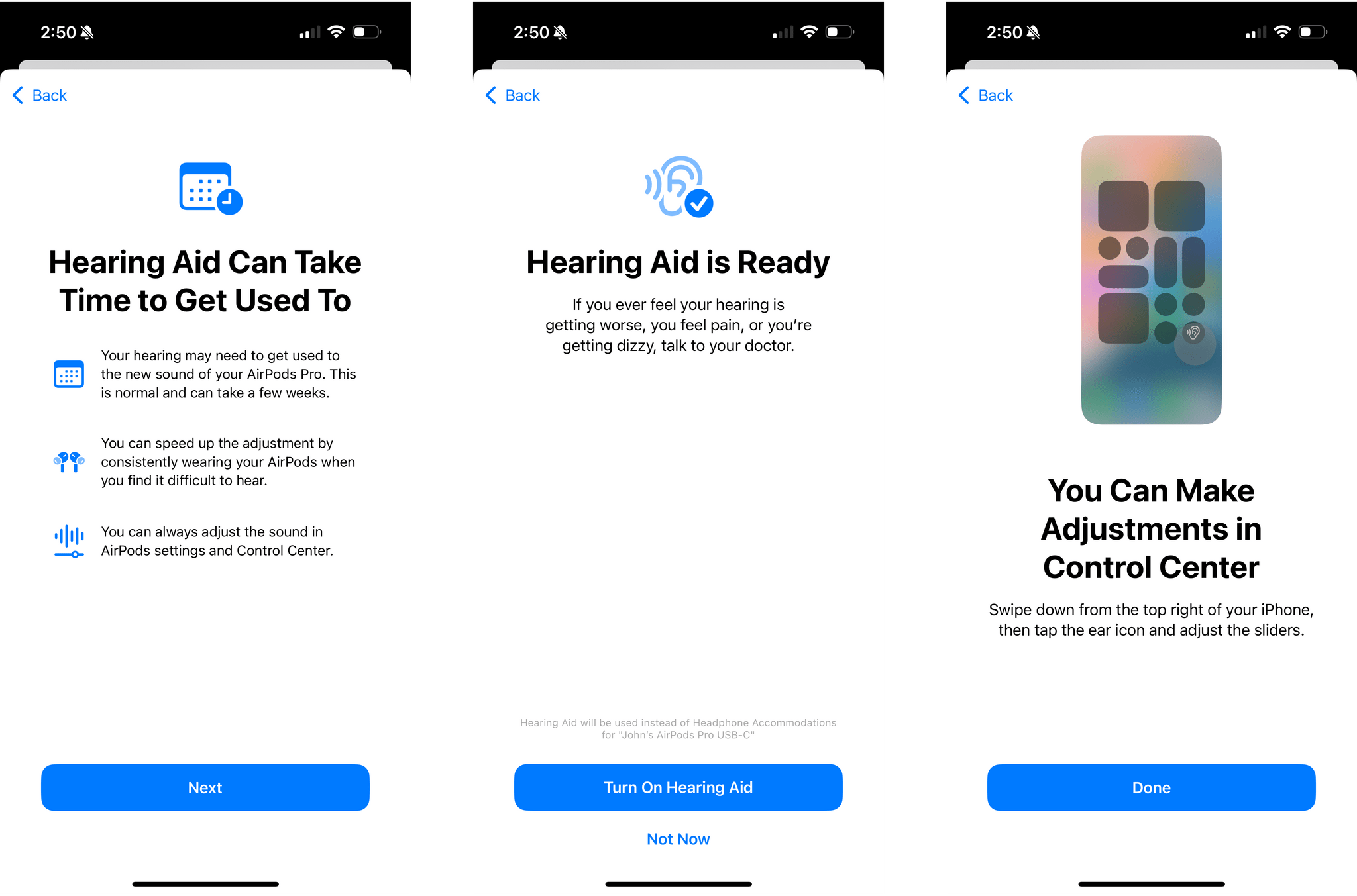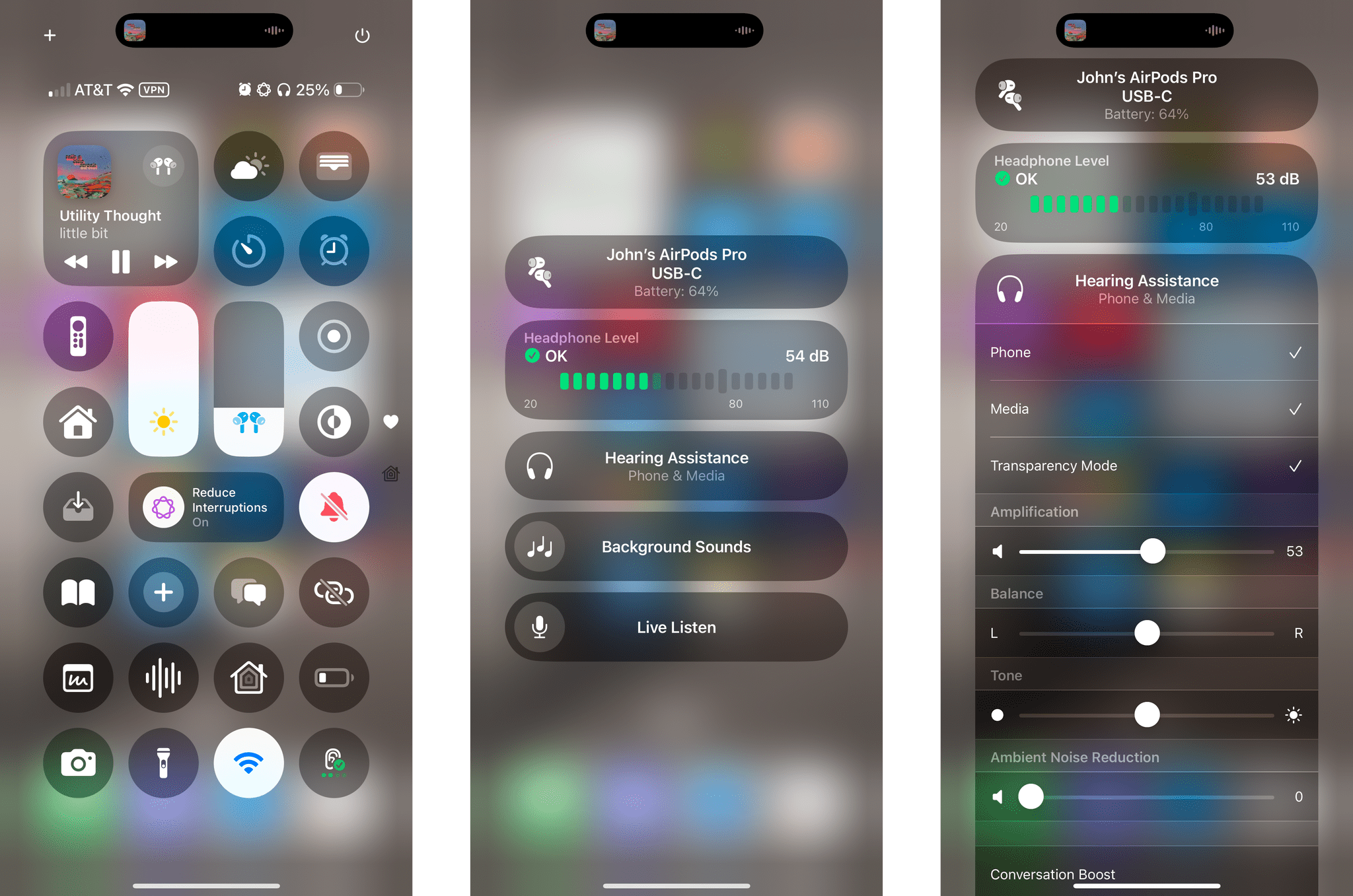I’ll admit, I was a little apprehensive about taking Apple’s hearing test. I’ve spent my fair share of time at loud concerts and shouting above the din in crowded bars, so I was fairly certain the test would show my hearing isn’t what it once was. The question was, “How bad is it?” With the release of iOS 18.1 and an update to the AirPods’ firmware, I set out to find out.
The AirPods Pro 2 didn’t get a hardware update this fall, but they may as well have, because the new hearing features they received via a software update add a whole new dimension to them. We’ve written about the hearing features before. They include three components:
- hearing protection, which lowers the volume of sounds that could potentially damage your hearing;
- a hearing test to check whether you have hearing loss in either ear; and
- a hearing assistance feature to boost frequencies where you’ve lost hearing.
Despite covering these features previously, I didn’t have a good feel for what they were like until I tried them myself, so I thought I’d share the process here and encourage others who can to give these new hearing features a try, too, because they work remarkably well.
Knowing that my hearing isn’t great made diving into Apple’s new hearing features both easier and harder in some ways. On one hand, I was eager to see if AirPods Pro could really make me hear better. On the other hand, I was concerned my hearing might be worse than I imagined and require something more.
To get over the hump of my apprehension, I built up to the hearing test by opening the Health app and poking around in the Hearing section a bit. I didn’t learn a lot, except that it turns out the AirPods’ hearing protection feature first kicked in Sunday, lowering a sound by a few decibels. It may have happened when I was banging dishes around as I unloaded the dishwasher, but I’m not sure. I also discovered that October has been a little quieter for me than September and that this year has been a little quieter than last. Both are good things, I suppose.
With that out of the way, I sat at the kitchen table with my iPhone and opened the hearing test in the Health app. The test walks you through checking that your environment is quiet and that your AirPods Pro 2 fit well before testing. You even have a chance to listen to an example tone before you start so you know what to expect.
You can tell that a lot of thought went into the process of preparing someone for the test. The steps were simple and clear, putting me at ease with what to expect by the time the actual test started. While you’re testing, your iPhone is automatically switched to Do Not Disturb mode, too, so you won’t be interrupted.
When the time came to begin testing one ear and then the other, I focused and listened carefully, trying not to psyche myself into hearing sounds that weren’t there. The test doesn’t take long, but it feels like a long time as you sit in silence tapping a circle each time you hear the test’s intermittent chimes.
When my left ear’s test was complete, the Health app told me that it had failed because it was interrupted by environmental sounds. Sure enough, a truck rolled down the street beneath my window near the end of the test, and while it wasn’t that loud, it was enough. So I retreated to my bedroom, away from the street and another floor off ground level.
That did the trick. I completed the test for both of my ears and found that, while I have some hearing loss as I suspected, it is less than I imagined. According to the test, I have mild loss in my left ear and little to no loss in my right ear. The app then prompted me to set up the hearing assistance feature, which amounted to tapping a button and reading about how the feature might take a while to get used to.
I spent most of my day at home alone, so I didn’t think I’d have a real opportunity to test the effect of hearing assistance until later. But then, I stood up, and boy, was I wrong. I had been sitting on my bed during the test, and when I got up, I noticed the difference the moment my feet touched the floor. As I walked across the room, every footstep was amplified and better defined.
Everything I did sounded richer and fuller. I sat at my desk and started typing, and I could hear the keys on the keyboard clacking more than ever. I made lunch, and the sounds of the packaging of the food I pulled out of the refrigerator were more noticeable. Then I started up a podcast episode that I had paused earlier in the day and immediately turned the volume down a couple of notches because the hearing assistance feature helps you hear media better too.
That’s cool and all, but if you’re wondering what the feature is like out in the world, the answer is that the difference is equally profound. To wrap this story up, I walked down to my local coffee shop to finish writing and editing. As I approached the front door of the shop, my instinct was to pull out my AirPods and drop them in their case before I placed my order, but I resisted. Instead, I walked up to the counter and ordered a drink from a soft-spoken barista. Not only could I hear the barista loud and clear, but I overheard a couple sitting at a table nearby, and when I headed outside to work for a bit, I could clearly hear nearby conversations, all against the backdrop of kids playing noisily at an adjacent park.
My brief experience with hearing assistance has been wild and surprising in a very good way. I’m fortunate that my hearing loss is mild. At the same time, though, the difference from using hearing assistance is so noticeable that I don’t want to take my AirPods out of my ears. I’m sure the novelty of hearing assistance will wear off and become the ‘new normal,’ but I won’t forget the experience of those first hours using it. It was remarkable.
Yesterday, Apple published a fascinating press release about how the company developed these hearing features. In it, Apple notes that 1.5 billion people experience some degree of hearing loss. That’s a lot of people, and many of them are untreated like me. My hearing isn’t so bad that I’ve ever felt like I should go to an audiologist, but by the same token, here I am writing this while listening to music and soaking in the sounds of my local coffee shop on a beautiful fall day, and it’s all crystal clear and great.
Give the hearing test a try. You won’t regret it.


